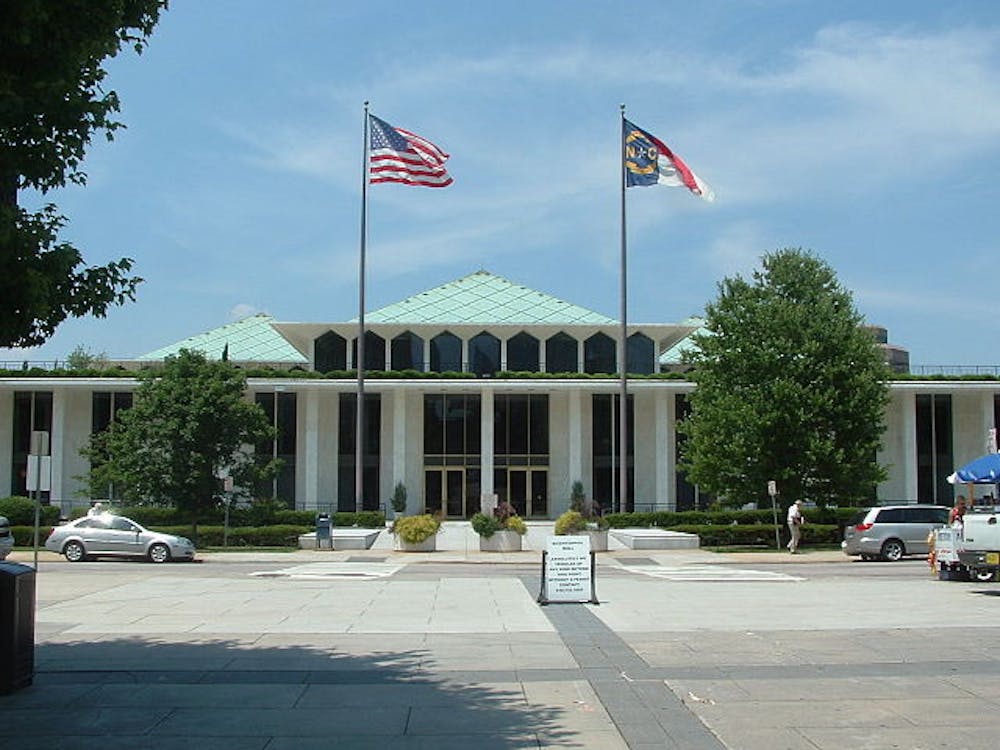North Carolinians with prior felony convictions will be able to vote after the North Carolina Court of Appeals recently upheld a ruling in favor of expanding voter eligibility.
The ruling, released on July 27, makes over 56,000 people newly eligible to vote, marking the largest expansion in voting rights in the state since the Voting Rights Act of 1965.
The decision is not final. Plaintiffs appealed the ruling, and in May the North Carolina Supreme Court agreed to hear the lawsuit.
Until a new decision is released, the North Carolina Board of Elections has confirmed that “any person serving a felony sentence outside of prison or jail is eligible to register to vote and vote” starting on July 27.
Community Success Initiative v. Moore
Previously, North Carolina law prohibited individuals from voting until they were “unconditionally discharged” from probation, parole or a suspended sentence.
The initial lawsuit, Community Success Initiative v. Moore, was filed by four nonprofits who sued two Republican lawmakers, the North Carolina State Board of Elections, and several members of the Board over voting rights.
The plaintiffs argued the government used felony disenfranchisement to suppress the political power of Black North Carolinians since Reconstruction and that current voting laws prolong disenfranchisement.
In their official complaint, the plaintiffs wrote that “this scheme overwhelmingly harms African Americans, who represent about 20% of North Carolina’s voting population but 40% of those disenfranchised while on probation, parole, or a suspended sentence.”
They also alleged that the laws conditioned the right to vote on one’s ability to pay court costs. Court fees have increased 400 percent over the past 20 years in North Carolina, according to NC Policy Watch, and common General Court of Justice Fees can cost up to $147.50.
On these grounds, plaintiffs argued that the defendants violated the state constitution’s free elections provision, equal protection clause, freedom of speech and assembly clause and ban on property qualifications to vote.
Orlando Rodriguez, attorney for the state, agreed that the racial basis of historical felony disenfranchisement is “very shameful,” according to the Carolina Public Press.
Rodriguez challenged the plaintiffs’ argument on technical grounds, arguing that the law that plaintiffs challenged cannot disenfranchise people convicted of felonies and that instead the relevant law was an 1875 constitutional provision, which the plaintiffs did not contest.
Additionally, lawyers representing the North Carolina State Board of Elections argued that reforms to state law in the 1970s have reduced disproportionate disenfranchisement.
Reactions
Voting rights advocates were energized by the ruling. In a rally the day the ruling was released, Kerwin Pittman, Director of Policy and Program at Emancipate North Carolina, emphasized the ruling’s impact on individuals’ political power, according to the Raleigh News & Observer.
“What we are about to do is awaken a sleeping giant. These 56,000 people are my people, justice-impacted and justice-involved individuals, who for years, the legislators did not want to see them vote, let their voices be heard for years,” Pittman said at the rally.
Theodore M. Shaw, distinguished professor of law at the University of North Carolina at Chapel Hill, lauded the ruling as a force for democracy, particularly in a society that disproportionately incarcerates people of color.
“The notion that people should not have the right to vote because they were convicted of a felony at one time or another — particularly when a lot of that is driven by the War on Drugs, which falls disproportionately on Black and brown people — is a tragic notion,” Shaw said. He emphasized that Black and brown people do not use drugs in higher proportions than white people.
However, others are skeptical of the ruling’s validity. Republican senator Warren Daniel, co-chair of the North Carolina Senate’s Redistricting and Elections Committee, implied that the ruling would constitute judicial overreach in a 2021 NPR interview.
"If a judge prefers a different path to regaining those rights, then he or she should run for the General Assembly and propose that path," he said in the interview, which followed the initial decision by the state Superior Court in 2021.
Defense attorney Sam Hayes called the lower court’s decision an “absurd ruling that flies in the face of our constitution and further casts doubt on election integrity in North Carolina," according to NPR.
Implications for midterm elections
Carissa Byrne Hessick, distinguished professor of law at the University of North Carolina at Chapel Hill, wrote in an email to The Chronicle that the effect of the ruling on upcoming elections is uncertain.
She referenced a 2018 Vox study, which analyzed the enfranchisement of 150,000 ex-felons in Florida as a case study and concluded that “ex-felons vote at low rates. And when they do, there is no strong partisan lean.”
Shaw also acknowledged a slim potential for the ruling to sway future elections but argued that the political impact of the ruling is less important than the principled one.
“The reasons to argue for restoring the right to vote to people who have finished their sentences is not political. It's not to affect the outcome of an election. It's to acknowledge that [these] people are still citizens, it’s to treat them as full human beings and restore them to productive roles in our society,” Shaw said.
Get The Chronicle straight to your inbox
Signup for our weekly newsletter. Cancel at any time.

Zoe Spicer is a Trinity junior and a features managing editor of The Chronicle's 119th volume.

